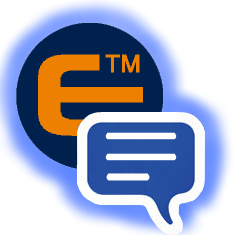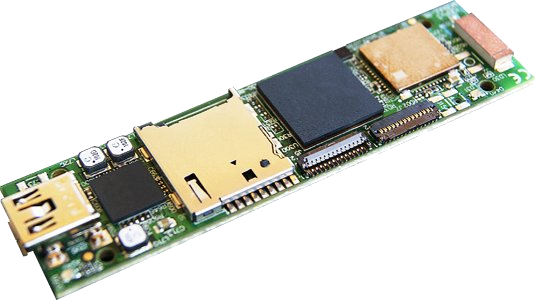Difference between revisions of "Getting started with IGEP COM MODULE"
From IGEP - ISEE Wiki
(→Overview) |
|||
| (6 intermediate revisions by 4 users not shown) | |||
| Line 7: | Line 7: | ||
|ISEE_Hardware={{#lst:Template:Links|IGEP_COM_MODULE_ISEE_Hardware}} | |ISEE_Hardware={{#lst:Template:Links|IGEP_COM_MODULE_ISEE_Hardware}} | ||
}} | }} | ||
| − | |||
__TOC__ | __TOC__ | ||
| − | |||
| − | This is the 1/3 chapter of the Getting Started with IGEP COM MODULE Tutorial Guide. | + | =Overview= |
| + | This is the 1/3 chapter of the Getting Started with IGEP COM MODULE Tutorial Guide. In this first chapter, we will learn : | ||
| − | + | * Boot the board and touring the default firmware. | |
| + | * Connect and log into. | ||
Upon completion, you will be ready to continue with chapter 2/3 that explains more advanced tasks. | Upon completion, you will be ready to continue with chapter 2/3 that explains more advanced tasks. | ||
| − | We HIGHLY RECOMMEND THAT YOU UPDATE YOUR FIRMWARE IMAGE TO A RECENT RELEASE to ensure you have the latest features and bug fixes. Please see the article on [[IGEP_firmware_Yocto | IGEP YOCTO Firmware]] | + | We HIGHLY RECOMMEND THAT YOU UPDATE YOUR FIRMWARE IMAGE TO A RECENT RELEASE to ensure you have the latest features and bug fixes. Please see the article on [[IGEP_firmware_Yocto | IGEP YOCTO Firmware]]. |
| + | |||
| + | |||
| − | |||
| + | |||
| + | =Requirements= | ||
In this tutorial we are going to use the following peripherals: | In this tutorial we are going to use the following peripherals: | ||
| Line 30: | Line 33: | ||
* PC | * PC | ||
| − | = Getting started = | + | =Getting started= |
| − | |||
<div style="text-align: center;"> | <div style="text-align: center;"> | ||
{{#ev:youtube|mXwt-2E4USE|500}} | {{#ev:youtube|mXwt-2E4USE|500}} | ||
| Line 37: | Line 39: | ||
| − | == Power up == | + | ==Power up== |
| − | |||
The board can be powered though USB OTG connector. It's recomended use an external USB hub. Connect the USB Standard-A to Mini-B type cable between the board and the USB hub. | The board can be powered though USB OTG connector. It's recomended use an external USB hub. Connect the USB Standard-A to Mini-B type cable between the board and the USB hub. | ||
[[Image:IGEP_COM_MODULE_with_HUB.JPG|center|200px]] | [[Image:IGEP_COM_MODULE_with_HUB.JPG|center|200px]] | ||
| − | == | + | {{Message/Information Message|title=USB OTG power is not available on newer IGEP COM MODULE devices|message='''NOTE''': Newer IGEP COM MODULE devices (IGEP0030-RFxx version since 2016 year) don't allow power devices using USB OTG connector. You should be used an expansion board (as example [[IGEP_NEW_YORK|IGEP NEW YORK]])}} |
| − | With the board powered, you'll see a few lights flash, after a few seconds may light up a fixed green led. The sequence will be different based on | + | ==Booting== |
| + | With the board powered, you'll see a few lights flash, after a few seconds may light up a fixed green led. The sequence will be different based on software version. | ||
"Under the hood" the bootloader is preparing to load the linux kernel. The linux kernel loads and initializes the hardware and mounts the root file system. Finally, you'll be able access to the board using the USB Ethernet Gadget. | "Under the hood" the bootloader is preparing to load the linux kernel. The linux kernel loads and initializes the hardware and mounts the root file system. Finally, you'll be able access to the board using the USB Ethernet Gadget. | ||
| − | == Remote connection via USB Ethernet Gadget == | + | ==Remote connection via USB Ethernet Gadget== |
| − | + | {{Message/Information Message|title=|message=If you aren't using a Linux operating system, use [http://labs.isee.biz/index.php/IGEP_SDK_Virtual_Machine IGEP SDK Virtual Machine] to connect to the board.}} | |
| − | {{Message/Information Message|title=|message=If you aren't using a Linux operating system, use [http://labs.isee.biz/index.php/IGEP_SDK_Virtual_Machine IGEP SDK Virtual Machine] to connect to the board}} | ||
| − | In your Host Machine, open a terminal session and connect to the board using the SSH protocol | + | In your Host Machine, open a terminal session and connect to the board using the SSH protocol: |
$ ssh root@192.168.7.1 | $ ssh root@192.168.7.1 | ||
Latest revision as of 09:57, 6 April 2018
| |
| |||||||||
Contents
[hide]
Overview
This is the 1/3 chapter of the Getting Started with IGEP COM MODULE Tutorial Guide. In this first chapter, we will learn :
- Boot the board and touring the default firmware.
- Connect and log into.
Upon completion, you will be ready to continue with chapter 2/3 that explains more advanced tasks.
We HIGHLY RECOMMEND THAT YOU UPDATE YOUR FIRMWARE IMAGE TO A RECENT RELEASE to ensure you have the latest features and bug fixes. Please see the article on IGEP YOCTO Firmware.
Requirements
In this tutorial we are going to use the following peripherals:
- IGEP COM MODULE
- USB Standard-A to Mini-B type cable
- Powered USB HUB 2.0
- PC
Getting started
Power up
The board can be powered though USB OTG connector. It's recomended use an external USB hub. Connect the USB Standard-A to Mini-B type cable between the board and the USB hub.

|
NOTE: Newer IGEP COM MODULE devices (IGEP0030-RFxx version since 2016 year) don't allow power devices using USB OTG connector. You should be used an expansion board (as example IGEP NEW YORK) |
Booting
With the board powered, you'll see a few lights flash, after a few seconds may light up a fixed green led. The sequence will be different based on software version.
"Under the hood" the bootloader is preparing to load the linux kernel. The linux kernel loads and initializes the hardware and mounts the root file system. Finally, you'll be able access to the board using the USB Ethernet Gadget.
Remote connection via USB Ethernet Gadget

|
If you aren't using a Linux operating system, use IGEP SDK Virtual Machine to connect to the board. |
In your Host Machine, open a terminal session and connect to the board using the SSH protocol:
$ ssh root@192.168.7.1
An empty password for root user should work to access to the shell prompt. If you're experiencing some problems connecting to the board try with following guide : Using USB ethernet gadget to communicate
You have successfully completed this chapter of the guide.
| |

|
If you have any question, don't ask to ask at the IGEP Community Forum or the IGEP Community Chat | 
|




